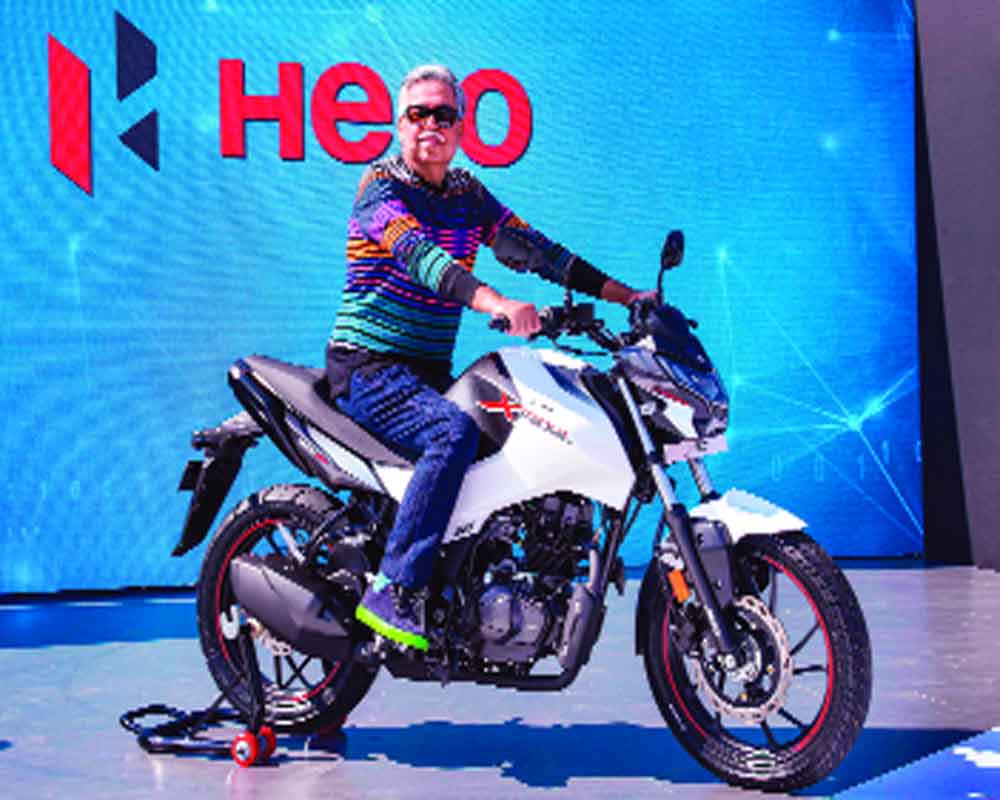Later this year, Hero MotoCorp will unveil the 100 millionth motorcycle to leave one of their production lines. In the 35 years since the Munjal-promoted group has been producing two-wheelers, first in collaboration with Japanese major Honda and then by themselves since 2011, they will become the fastest manufacturer to reach this milestone.
But as questions hover around the future viability of the company as it finds itself with a global technology partner unlike their Indian rivals, Bajaj and TVS, the Chairman and promoter of the company, Pawan Munjal wanted to showcase the future with a display of Hero’s technological and product development competence at their Centre for Innovation and Technology (CIT) established at Kukas, outside Jaipur.
Hero, which skipped the Auto Expo earlier this month also used the opportunity to launch their latest products that all adhere to the upcoming BS-6 emission norms. As the company has seen increased competition over the years and declining sales of their bestsellers, they also launched the new Glamour 125 and Passion Pro as well as showcasing the Xtreme 160R road racer in the fast growing 150-200cc category.
The company wants to regain their leadership position in these segments where Bajaj, TVS and their erstwhile partner Honda dominates. Speaking to The Pioneer, Munjal also mentioned that Hero could look at potential partnerships with either Indian or global ‘frenemy’ companies going forward, and that he was not terribly concerned about the move to electric vehicles, “we are a large investor in Ather Energy, India’s leading electric two-wheeler company with a 31 per cent stake in the company, and we have been helping the company grow. The scooters might not have a ‘Hero’ but that does not mean that Hero is not seriously looking at this area. Our major issue with the Government’s initial plan to move to all-electric vehicles by 2025, which it wisely reconsidered was that the entire infrastructure would be disrupted, from sales channels to mechanics.
The industry could have shifted, but the government has to remember the contribution the automotive industry makes to the Indian economy and think accordingly.” He added that Hero was looking at electric and hybrid technologies for two-wheelers as early as 2012 even before the modern shift to such technologies, “we are a leader in this space in India, just because we do not have a product right now should not be something to be worried about.”
Munjal also said that Hero would invest over Rs 10,000 crore in new plants, research and development and market development over the next five to seven years in order to maintain its leadership. “When we started our solo journey in 2011 we had just 100 engineers doing basic product development in Dharuhera, three plants and exported products to just four countries. Today, we have one of the most advanced R&D centres in the two-wheeler world in Kukas with over 1,000 engineers, products have just started rolling out of our eighth plant in Andhra Pradesh and we have two global factories in Bangladesh and Colombia and we are present in over 40 countries globally. I’m sure our next 100 million will happen a lot faster than our first 100 million.”


























